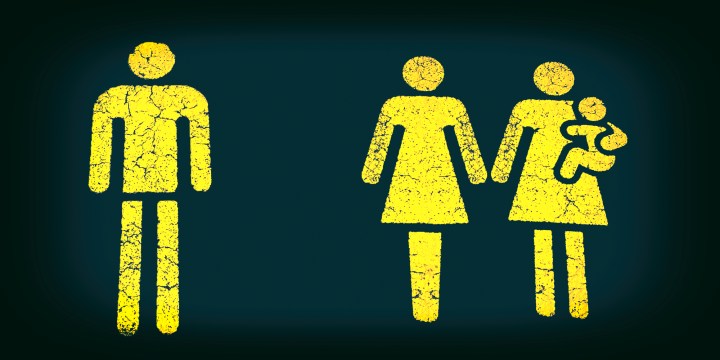OP-ED
Unplanned parent in the hood: Navigating the legal maze of ‘known sperm donor agreements’

Are known sperm donor agreements worth the paper they are printed on? A recent high court judgment suggests they are not as secure as people think.
Bonginkosi Shozi is a Doctoral Fellow with the African Health Research Flagship at the University of KwaZulu-Natal. Dr Donrich Thaldar is Associate Professor in the School of Law, University of KwaZulu-Natal.
Using sperm donors is a necessary step for many people who hope to have a child of their own but cannot do so without medical help. But the costs of using an anonymous donor from a sperm bank – which can be more than R10,000 – and the already high cost of fertility treatments often mean this is not an avenue people can afford to explore. Because of this, some make agreements with people they know to donate sperm.
Arrangements of this kind, commonly referred to as “known donor agreements”, have become increasingly common in South Africa. However, their legal status is uncertain, as our law does not explicitly provide for them. This legal uncertainty can have dire consequences when disputes arise. The recent case of QG v CS in the Pretoria High Court is a sobering example.
This case came about because a lesbian couple, who wanted to have a child but wanted to avoid the costs associated with sperm donation, resorted to using social media to recruit a donor. One man (called “Q” in the court judgment to conceal his identity) expressed an interest in becoming a donor after seeing a post on Facebook.
After meeting and discussing the arrangement, the couple agreed to have Q be the donor for the future child. The three of them went to a fertility clinic, where Q’s sperm was used to inseminate one of the women, resulting in the birth of a boy (referred to as “child L”) nine months later.
Initially, Q had expressed that he had no interest in being intimately involved in raising child L. However, as Q spent more time with the child, he had a change of heart and wanted to play a bigger role in his life. This caused conflicts between Q and child L’s legal parents (the lesbian couple), which led to the couple deciding they no longer wanted Q to be a part of child L’s life.
Unhappy with this, Q approached the courts hoping to acquire parental rights and responsibilities in respect of child L.
The couple opposed Q’s application, given that he was legally just a sperm donor, meaning he had waived any claim to parental rights and responsibilities that normally accrue to a biological parent, and this was recorded in the contract he had signed.
But Q’s application was not based on his status as child L’s biological father. Rather, it was based on section 23 of the Children’s Act, which provides that any person who has an “interest” in the care, wellbeing or development of a child may approach the high court and make a case to be awarded parental rights and responsibilities in respect of such a child.
In its judgment, the high court paid little attention to the written agreement between the parties. And for good reason, because the Constitution provides that in all matters concerning children, the best interests of the child are paramount. This places a duty on courts to always put the best interests of the child first and foremost – irrespective of the agreement between the parties.
Because of this, the central issue was not what the parties had agreed, but rather whether Q playing the role of a parent in child L’s life was in child L’s best interests.
Ultimately, the application by Q was unsuccessful because the court held that Q had not spent enough time with child L, nor had he developed a close enough relation with the child, to justify making him a permanent part of Q’s life against the legal parents’ wishes.
It is important to note, however, that the court made it clear that neither Q’s status as a sperm donor nor the known donor agreement were absolute bars to a person bringing an application in terms of section 23 of the act. In other words, had the facts been different, and there had indeed been a long-standing and close relationship between Q and child L, the court may well have ruled in Q’s favour. Indeed, Q might still prevail, given he is applying for leave to appeal.
This judgment serves to illustrate that while known donor agreements are convenient, they come with certain risks. Their legal status is uncertain, and if disputes arise, courts may elect to ignore such an agreement.
Therefore, people contemplating entering into these agreements ought to be very careful about who they involve in their intimate family life, as this involvement may end up being more permanent than they planned. DM





















 Become an Insider
Become an Insider
Comments - Please login in order to comment.